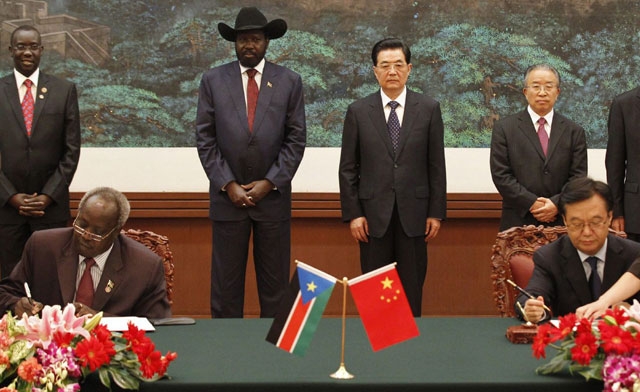T
he Chinese government has caught itself in a dilemma. Even though the economy has slowed to a five-year low of just 7%, the government has reduced reserve ratios at banks, allowing for greater investment. The stock market is booming, causing mixed opportunism and pessimism for the inevitable crash. The mentality of the Chinese investor now is to grab hold of the windfall while keeping an eye out for the crash that will undoubtedly flatten most of them. When the crash does hit, the government will have successfully shifted most of its debt onto the backs of the investors in the form of shares. Many point to the Japanese and American housing bubbles of previous years as predictive for the future of the Chinese economy, but China may still have an ace up its sleeve.
The Asian Dreamers
A recent narrative in Chinese politics is that of the ‘Chinese Dream’. Nationalism and a renewed call to filial duti es has led to an increasing number of students who choose to come back to the homeland after receiving a degree at a top foreign university. In India, a similar phenomenon has led to the creation of online retail giants Snapdeal and Flipkart by returning Ivy Leaguers, shining examples of the e-commerce boom in Asia. A combination of visa issues and nationalism has led “America’s unwanted Ivy Leaguers” to return to their countries and create businesses there.
es has led to an increasing number of students who choose to come back to the homeland after receiving a degree at a top foreign university. In India, a similar phenomenon has led to the creation of online retail giants Snapdeal and Flipkart by returning Ivy Leaguers, shining examples of the e-commerce boom in Asia. A combination of visa issues and nationalism has led “America’s unwanted Ivy Leaguers” to return to their countries and create businesses there.
This is alarming for the West, of course. To private universities the lure of money they receive from their foreign, upper class students who often pay the full tuition through their parents is irresistible, but for governments the headache is that they are using resources to train what are essentially their future competitors. In this decade, hundreds of thousands of Chinese undergrads will finish their degrees and return home to disseminate the creative thinking they have learned abroad. From the perspective of a young Ivy League Chinese innovator, China offers family, friends, a booming demand for startups, and an overwhelming respect for shiny foreign degrees. Why would he or she not return?
Cheaters never prosper?
The recent news of Chinese students cheating in university and nationals accused of economic espionage is at once both troubling and familiar news. Anyone familiar with Chinese culture could tell you that this is barely considered newsworthy in China. The mentality of doing things as efficiently as possible with the lowest regard for the law is what provided the basis for China’s successful export-heavy trade policy in the preceding decades, after all. International scorn for Chinese intellectual property (IP) theft has not deterred them in the least from doing business with anyone who wants a piece of the expanding Chinese pie. What it does do, however, is create a smokescreen for a mystifying movement in China. Chinese companies are becoming the innovators now.

China leads Asia in innovation along with India, another country infamous for poor IP protection, combining for over 130 venture capital deals in just the first quarter of 2015. Courts are being created to protect IP rights – yes, in China! Despite the slowdown in economic growth, foreign investments are flocking towards Asia. Areas like Chongqing and Guangdong receive billions annually, with the government creating such a conducive environment for R&D that it would almost be a disaster not to invest there. Software and e-commerce are focused heavily on demand, and China as well as India provides that in spades. Successful companies such as Alibaba have shown that despite the rampant scamming and embezzling inherent in China, the demand pressure created by such a large population has made e-commerce an immutable part of Chinese living. In perhaps the biggest irony, Alibaba’s Jack Ma derived much of his company decisions from his idols eBay and Amazon. In a talk he held last year, who would be listening fervently to his words and writing them down but one Jeff Bezos, founder of Amazon?




